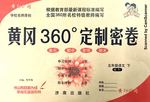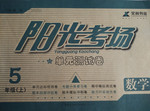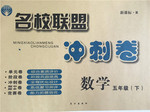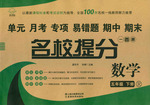题目内容
1.The air pollution was so bad in Harbin,in C hina,on October 21,2013 that the city had to close roads and schools,and cancel hundreds of flights from its airport.News reports said the smog (a mixture of smoke and fog) was so thick that people couldn't see more than 10 or 20 metres in front of them.
It is also said that people could not even see the person standing next to them.The city's website said:"You can't see your own fingers in front of you."
The local people said there was a"burning"smell in the air.Many people covered their noses and mouths with scarves or masks.
The pollution was caused on several factors including:farmers burning off old corn s talks and crop stubble; coal-fired heating systems; and low winds that allowed the smoke to remain over the city.
The smog had been building up for several days.It became worse when the city turned on the public heating system,which uses coal to heat millions of homes and offices in the city.
Harbin has a population of more than 10 million people.It lies in northeastern China,where cold winter weather can last up to six months.The main fuel there is coal,because it is cheaper than other types of fuel.
Air pollution from burning coal can cause health problems like heart disease.During the smog crisis*in Harbin,the number of people taken t o the hospital with breathing problems was 30% higher than usual.
The city government is trying to reduce its use of coal by adding more insulation and better roofs and windows to buildings to reduce heating needs.It has also used cleaner fuel for cars and factories.
32.The roads and schools in Harbin had to be closed on October 21,2013 because ofC
A.the heavy rain
B.the strong wind
C.the serious smog
D.the terrible snow
33.There are many reasons for the air pollution EXCEPTD.
A.farmers burn off old corn stalks and crop stubble
B.people use coal to heat millions of homes and offices
C.The smoke remains over the city because of low winds
D.Many buses and cars use cleaner fuel and so do factories.
34.What is the government trying to do when the air pollution get worse?C
A.To offer cars new fuel.
B.To give people more masks.
C.To reduce its use of coal.
D.To ask people to stay at home.
35.What does the passage mainly tell us?A
A.The serious air pollution in China
B.Coal-fired heating systems
C.The population crisis i n Harbin
D.The reasons for heart disease.
分析 2013年10月21日,中国哈尔滨的空气污染太糟糕了,以致于学校、道路和工厂都被迫关闭.新闻报道雾霾太重人们看不清前面10或20米外的东西,据说人们甚至看不清旁边的人.污染由几种因素引起:农民烧旧玉米秸和作物残茎,燃煤取暖设备;低风使烟雾在城市上空滞留.燃煤引起的空气污染可以引发像心脏病的健康问题.市政府正努力通过增加隔离层和优化建筑物的房顶与窗户减少取暖需求的方法减少煤炭的使用.
解答 32-35 CDCA
32题答案是C.细节理解题.根据News reports said the smog (a mixture of smoke and fog) was so thick that people couldn't see more than 10 or 20 metres in front of them.新闻报道雾霾太重人们看不清前面10或20米外的东西,故答案选C.
33题答案是D.推理判断题.根据farmers burning off old corn stalks and crop stubble; coal-fired heating systems; and low winds that allowed the smoke to remain over the city.农民烧旧玉米秸和作物残茎,燃煤取暖设备;低风使烟雾在城市上空滞留,故答案选D.
34题答案是C.细节理解题.根据The city government is trying to reduce its use of coal by adding more insulation*and better roofs and windows to buildings to reduce heating needs.市政府正努力通过增加隔离层和优化建筑物的房顶与窗户减少取暖需求的方法减少煤炭的使用,It has also used cleaner fuel for cars and factories.汽车和工厂也已经使用更清洁的燃料,故答案选C.
35题答案是A.旨大意题.根据The air pollution was so bad in Harbin,in China,中国哈尔滨的空气污染太糟糕了,It is also said that people could not even see the person standing next to them.据说人们甚至看不清旁边的人,The pollution was caused on several factors*including:污染由几种因素引起,The smog had been building up for several days.烟雾已经形成几天了,Air pollution from burning coal can cause health problems like heart disease燃煤引起的空气污染可以引发像心脏病的健康问题,故答案选A.
点评 本文是健康环保类阅读理解.做这类题材阅读理解时要求考生对文章通读一遍,做题时结合原文和题目有针对性的找出相关语句进行仔细分析,结合选项选出正确答案.推理判断题也是要在抓住关键句子的基础上合理的分析才能得出正确答案,切忌胡乱猜测,一定要做到有理有据.

 黄冈360度定制密卷系列答案
黄冈360度定制密卷系列答案 阳光考场单元测试卷系列答案
阳光考场单元测试卷系列答案 名校联盟冲刺卷系列答案
名校联盟冲刺卷系列答案 名校提分一卷通系列答案
名校提分一卷通系列答案Justin was excited.He knew a moth (蛾) or butterfly was about to be (3)A,but he didn't know what kind.He was (38)D to know what gift nature was about to give him.
"Dad!"shouted the boy while running to me one day."Something's (39)B.Come see!"
He led me to his room.The cocoon had become half transparent and we could (40)A the wings of the unborn.Soon,a moth broke free from the cocoon,and laid eggs completing the life (41)C of the little caterpillar.
The next day,I convinced Justin it was time to set the moth free.He took it(42)D,opened the jar,and the little moth flew out.It(43)C the yard twice,came back,and landed on Justin's arm.He picked it up,tossed it in the air,and the moth repeated its (44)A pattern.He tried over and over,but each time it would (45)D to his arm.
Justin (46)B.He put his little pet back to the jar.The next day he attempted to set it free again,and after a few repetitions of the same behavior,the moth(47)C flew off into the grass.
Like a (48)A,I believe the moth was afraid to leave what it was comfortable with.It wanted to stay with something (49)D,scared to move on and experience something unknown.
I was once that little moth.My cocoon was my mother's (50)A,in which I was comfortable.Like the moth,I didn't want to fly too far away from it.I was (51)C when my first job required me to move to a new city.What would I find there?I liked (52)B I was.
Humans are creatures of (53)C.We resist change.However,if I hadn't moved,I would not have experienced many (54)B and wonderful things or met many of my friends.So each move gave me the (55)D to learn and experience,but best of all,I met friends.
| 36.A.trapped | B.wrapped | C.developed | D.protected |
| 37.A.born | B.changed | C.raised | D.created |
| 38.A.upset | B.content | C.lucky | D.curious |
| 39.A.disappearing | B.happening | C.spreading | D.cracking |
| 40.A.identify | B.feel | C.count | D.imagine |
| 41.A.plan | B.task | C.cycle | D.project |
| 42.A.back | B.down | C.aside | D.outside |
| 43.A.explored | B.searched | C.circled | D.abandoned |
| 44.A.flight | B.game | C.adventure | D.communication |
| 45.A.stick | B.cater | C.turn | D.return |
| 46.A.kept up | B.gave up | C.looked around | D.turned around |
| 47.A.carelessly | B.successfully | C.finally | D.hesitatingly |
| 48.A.human | B.butterfly | C.caterpillar | D.pet |
| 49.A.friendly | B.similar | C.pleasant | D.familiar |
| 50.A.love | B.instruction | C.requirement | D.expectation |
| 51.A.thrilled | B.crazy | C.afraid | D.annoyed |
| 52.A.what | B.where | C.how | D.who |
| 53.A.emotion | B.conscience | C.habit | D.ambition |
| 54.A.odd | B.new | C.funny | D.vital |
| 55.A.courage | B.pleasure | C.motivation | D.opportunity |
| A. | absurd | B. | abundant | C. | adequate | D. | autonomous |
--Yes,because they describe the way of life of the ____ people there.( )
| A. | usual | B. | regular | C. | normal | D. | ordinary |